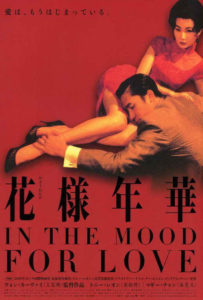
“In the Mood for Love” Theatrical Poster
Director: Wong Kar-wai
Cast: Tony Leung Chiu-wai, Maggie Cheung, Lai Chen, Lai Chin, Rebecca Pan, Joe Cheung
Running Time: 127 min.
By Alexander
Exquisite. From the lush hues of the set design, to Maggie Cheung’s seemingly infinite supply of cheongsams, to Shigeru Umegayashi’s haunting music, to Tony Leung’s performance, to Wong Kar Wai’s direction–everything about “In the Mood For Love” is exquisite. And while I’ve praised the beauty of a film’s cinematography (“House of Flying Daggers”); the beauty of its performers (“Hero”); the beauty of its performances (“Oasis”); and the beauty of its story (“Il Mare”); I’ve yet to see a film that was completely beautiful, from the costuming to the acting to the direction to the story to the score. Simply, “In the Mood For Love” is the most beautiful movie I have ever seen.
Alexander’s Rating: 10/10 (Perfect)
By Lady Tequila
This has got to be one of the greatest movies ever to come out of Hong Kong. A gentle, wistful, yearning tale of what it is to be in love and to not be able to do the blindest thing about it. It’s gently, exquisitely told, and is one of the most visually lyrical movies I’ve ever seen. There are images and moments in this film that are simply haunting, and some of the questions raised, about morality, ‘right’ versus ‘wrong’, and the pressures of society are truly thought-provoking. A film not to be missed.
The basic story is about Chow Mo-Wan (Tony Leung) and Su Li-Zhen (Maggie Cheung). They are neighbours. They both suspect that their respective spouses are conducting illicit affairs; these suspicions are never spoken, but there are enough long moments of silent contemplation and quiet sadness for us, the viewers, to know what is going on. They eventually discover that their spouses are in fact having an affair together. Thrown together by this strange and painful fate, Mo-Wan and Li-Zhen begin searching for reasons as to why and how it happened. They are still nothing but courteous to one another, and the closest they get is when they act out ‘scenes’ between the unfaithful pair. It’s obvious that they are in love, but due to trying to keep their gossiping land-lady happy, and due to trying to do the ‘right’ thing, they can do nothing about it. They want to remain honourable, and not end up ‘like them’. That’s where the heartache comes in.
As with Chungking Express, the plot is simple, but works because we care about the characters, and because of the stunning visuals, and because in real life sometimes things really are that simple. Wong Kar-Wai shows us a world of eternal rain and noodle-bars, a world where the people who impose society’s rules can’t keep them, and a world where maybe – just maybe – sometimes doing wrong is actually doing right. We are presented with two people who do the ‘right’ thing, while the ones they love do the ‘wrong’ thing – it’s left up to us to decide who is actually wrong and who is actually right.
The film exudes a rich, opulent sensuality, without the two main characters ever even TOUCHING each other. Which is plain amazing. And completely ‘un-Hollywood’. No sex, no grabbing and groping and snogging and all of that stuff – but it still sizzles. Li-Zhen walking in slow-motion in the rain, all swinging hips in a tight cheongsam and coiffure, to the beat of hypnotic music; Mo-Wan always alone, in a haze of cigarette smoke, with the low-lighting gleaming from his slicked hair; the heat of two people alone in a room together, who can’t even TOUCH each other. Hollywood, take note, that is what is erotic. Because really what we, as viewers, are interested in is the heat of a moment, the look in someone’s eyes – after that it mostly gets boring. Too many Hollywood directors would have spoiled the whole thing with sex. Instead, Wong Kar-Wai introduces us to a world of heightened senses, where the smallest touch, the briefest look, the set of someone’s head – can mean so much.
The cast is brilliant, too. Tony Leung is his usual brooding self, Maggie Cheung puts in one of the best performances of her career – and bear in mind that the majority of the dialogue was improvised, and you’ll see all the actors in a totally new light. Wong Kar-Wai is, quite simply, a genius, and one of the most innovative and interesting directors of recent years, Hong Kong or out of it.
I’ve tried to find fault with this film but I can’t. Go see it immediately!
Lady Tequila’s Rating: 10/10
By Woody
Unrequited love is a kind we have all experienced. Whether it be one-sided or dually felt, it is something that we can all relate to. Loving someone and not being able to act on it is one of the painful parts growing up. It will happen. This is the kind of love that resonates through the works of Wong Kar-wai, and it is no doubt part of what makes his films so wonderful. He taps into painful experiences we all can relate to, and relates them back to us in a simple and powerful way. Unrequited love is evident in nearly all of Wong’s films, whether they be one sided infatuations, as in such works as “Days of Being Wild” and “Fallen Angels”, or felt by two parties, as in “In The Mood For Love”.
“In The Mood For Love” has a deceptively simple plot. The place is Shanghai in the late 1950’s. Mo-wan’s wife may be having an affair with another man. Li-zhen’s husband may be having an affair with another woman. Li-zhen and Mo-wan live in the same apartment building. Li-zhen and Mo-wan are both terribly lonely, their spouses both away for long periods of time. Both Li-zhen and Mo-wan come to believe that their spouses are cheating on them with one another. The two start meeting each other to discuss the problem, to act out their frustrations, to be a shoulder for the other to cry on. And in the process, they become close.
This is one of the greatest romantic films ever made, and yet there is hardly any physical contact. This is not about the kind of love one wishes he or she wishes they could experience. This is about the love we all experience. The love we have no control over. The love that can not be professed or acted upon. The love that forever haunts you, day in and day out. The love without a happy storybook ending. And that is why this film works so brilliantly. We feel what the characters feel, for one way or another, we have been there ourselves.
The forces behind this film deserve all of the praise the film has won them. Tony Leung Chui-wai, once nominated for his previous collaboration with Wong, 1997’s “Happy Together”, finally won the Best Actor award at the Cannes Film Festival, and with good reason. He makes Mo-wan into a tragic figure, a man with no control over a tough situation, whose loneliness threatens to swallow him whole, and whose regrets will no doubt eventually do just that. Maggie Cheung gives her best performance in years as Li-zhen, whose loneliness and anger with her husband leave her open only for more heartbreak and anguish.
The setting of the film is also another factor in its success. 1950’s Shanghai is a remote and lonely place in this film, awash in rain and emptiness. The music fits the setting and film like a glove, most notably “Yumeji’s Theme” by Umebayashi Shigeru, used to show to us how Mo-wan sees Li-Zhen.
With this film Wong Kar-wai has proven that he is not a one trick pony, but a true innovator. While others worldwide are still trying to nail the style he made famous in the mid-nineties, Wong has moved on into more difficult territory without even looking back. No smug self-references or stylistic similarities here. Just a great film with honest emotion and brilliant execution.
If you enjoy this, I must also recommend an earlier Wong Kar-wai film, “Days of Being Wild”, which can be seen as a thematic prequel to this film, and which also features a similar setting and another grand performance by Maggie Cheung. And if you have already seen that film, what are you waiting for? See this one immediately!
Yet again Wong Kar-wai has crafted a simple-yet-heartfelt film that one can’t help but love. This is a film that will stay with you for years, like Wong’s masterpiece “Chungking Express”. Wonderful. Absolutely wonderful.
Woody’s Rating: 10/10
By Digital D
In The Mood for love will not be for you if you’re looking for a whirlwind romance. But if you are looking for a film that is focused on style, mood and unspoken love, this is a movie to be enjoyed. Maggie Cheung and Tony Leung star in this story of unfulfilled love. They are neighbors that realize their spouses are having an affair. They console each other and try and understand their actions by role playing throughout the movie. In the process they fall in love, yet they cannot consummate this love because of a promise not to sink to “their” level. Cheung and Leung don’t overact this drama, rather they let the melancholy in their faces express the emotion.
The way the film is shot gives off the feeling of a tight almost claustrophobic atmosphere. Which probably represents how the characters are trapped in a situation that has no victories. And also Maggie Cheung basically wears a cheongsam throughout the film but it changes almost every scene. The cheongsam seems to represent the restrictive state of being a woman at that time. For example, her boss is obviously having an affair, as she keeps his schedule straight and lies to his wife for him and even purchases gifts for the mistress (all in a day’s work of a secretary). Yet when the boss gets wind of her affair, he shows disdain towards her and looks disapprovingly. Also she gets reprimanded by her landlady for staying out late and not being home, while the husband is away. So this restrictiveness is very real, yet she breaks free by the dazzling array of materials and colors for these dresses. And although it may seem like it’s freeing, in the end the dress is still as restrictive as before.
I watched this with the wife and at the end of the movie we argued about whether they did “it” or not. I said they didn’t and she insisted that they did. She explained that they just didn’t show it. But this is one of the things that you never really know…and maybe even Tony Leung’s character may not be sure of as it seems as if he is remembering this period of his life and has finally gotten it off his chest many years later in the hole of some ancient wall. But did read in some interview, that Maggie Cheung said that there were scenes they shot that were love scenes, but the director decided to not use them. I applaud this move as it adds to tension and pain of unfulfilled and forbidden love. Overall this movie may be a bit artsy for some and may slow moving and plotless, but life is sometimes that way. Give it a chance, it’s images and emotions will stick with you.
Digital D’s Rating: 9.5/10

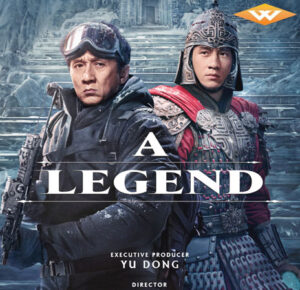

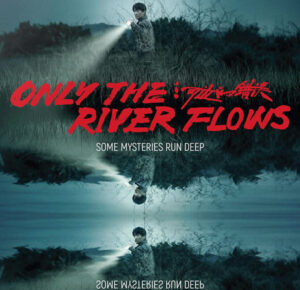
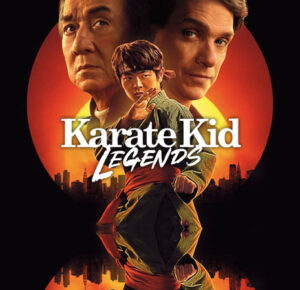









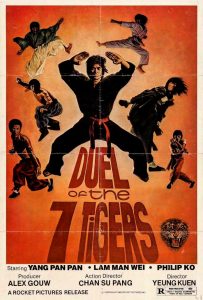








Be the 1st to Comment